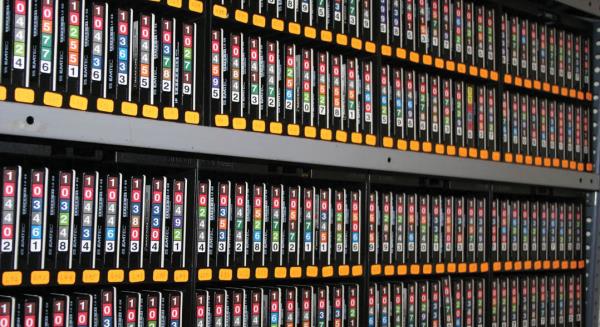01 April 2025

World Backup Day, observed annually on 31 March - the day before April Fools’ Day - serves as a crucial reminder for individuals and organizations to prioritize the security and preservation of digital data.
In the UK, where an increasing number of businesses are defined by their reliance on technology, the significance of this day resonates profoundly across all sectors. As data breaches, cyberattacks, hardware and power failures become more commonplace – as evidenced by Heathrow Airport on 21 March - understanding the importance of robust backup strategies is essential for safeguarding organisational integrity, enhancing operational continuity, and complying with regulatory frameworks.
“On World Backup Day, organisations should rethink their backup strategies to prioritise efficiency, not just speed. Cost-effective, scalable solutions that optimise both performance and long-term data retention are the key to unlocking modern data backup without unnecessary expense,” recommends Gal Naor, CEO, StorONE.
Frank DeBenedetto, GTM General Manager, MSP Suite, Kaseya, agrees that ransomware and cyberattacks have escalated the need for advanced disaster recovery solutions: “one critical measure is the implementation of immutable backups, which protect against ransomware by ensuring that backups cannot be altered or deleted by attackers. Offsite backup storage adds another layer of protection by storing critical data in a separate, secure location. Having an incident response plan that outlines steps to contain, investigate, and recover from cyber incidents is essential.”
A well-structured backup and archiving strategy ensure not just recovery, but business continuity in the face of disruption. While cybersecurity tools continue to evolve, there is also a critical role for tape technology in safeguarding data, which offers an added layer of security, further enhanced by an air gap that keeps data physically isolated from online threats, making it a valuable part of a modern resilience strategy.
“All-flash storage is often thought of as the best solution for data backup. But the reality is that it is an expensive and unnecessary investment for most organizations. Backup data must be reliable and quickly recoverable but should not be stored on the most expensive media,” notes Naor. “Hybrid storage solutions that intelligently tier data between flash and disk can offer a more balanced approach. Flash can be used for critical recovery points, while older snapshots and backups can reside on lower-cost disk storage. This tiering ensures rapid recovery without the excessive costs of maintaining an all-flash backup infrastructure.”
“A fundamental approach to safeguarding data is the 3-2-1 backup rule: maintain at least three copies of your data, on at least two different media types, with at least one copy stored offsite. This methodology ensures data availability even in the face of hardware failures, cyberattacks, or natural disasters,” adds Jon Fielding, Managing Director, EMEA, Apricorn. “However, adherence to this rule requires consistent implementation and regular verification to ensure backups are current and retrievable. Organisations should commit to making data protection a daily priority and reinforcing defences against cyber threats and data loss.”
Accordingly, World Backup Day is not merely a date on the calendar; it is a pivotal moment for UK enterprises and the public sector to re-evaluate their data backup strategies.










